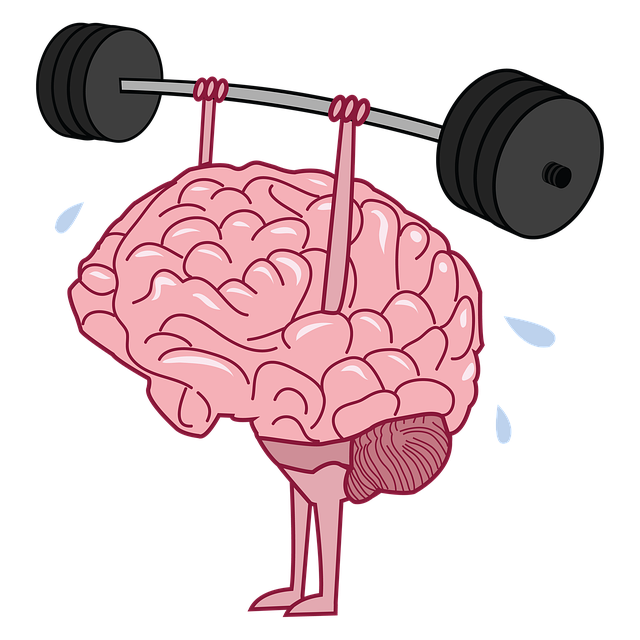Wheat Ridge Hebrew Speaking Therapy offers data-driven, culturally competent mental health care. They utilize comprehensive risk assessments and diverse data collection methods to personalize treatments, focusing on precision and inclusivity. By analyzing trends, they identify community needs, develop targeted interventions (e.g., burnout prevention, cultural crisis guidance), and create tailored content for their Mental Wellness Podcast Series. Data insights drive strategic planning, leading to innovative programs like Inner Strength Development and Stress Management Workshops. Ethical practices, confidentiality, and culturally sensitive tools ensure safe, effective patient navigation and positive therapeutic outcomes.
Mental health data analysis is a powerful tool for transforming patient care at Wheat Ridge Hebrew Speaking Therapy. By understanding and interpreting complex data, therapists can tailor treatment plans to individual needs, enhancing outcomes significantly. This article explores key aspects of mental health data collection, from comprehensive methods ensuring accurate insights to ethical considerations safeguarding client confidentiality. Delve into the process and discover how analysis drives personalized therapy at Wheat Ridge, revolutionizing mental health support.
- Understanding Mental Health Data: The Foundation of Effective Therapy at Wheat Ridge Hebrew Speaking Therapy
- Collection Methods: Ensuring Comprehensive and Accurate Data Gathering
- Analyzing Trends: Unlocking Insights for Personalized Treatment Plans
- Interpretation and Its Impact: Translating Data into Actionable Strategies
- Ethical Considerations in Mental Health Data Analysis: Safeguarding Client Confidentiality at Wheat Ridge Hebrew Speaking Therapy
Understanding Mental Health Data: The Foundation of Effective Therapy at Wheat Ridge Hebrew Speaking Therapy

At Wheat Ridge Hebrew Speaking Therapy, we firmly believe that understanding mental health data is the cornerstone of delivering effective therapy. Our approach leverages comprehensive risk assessments and healthcare provider cultural competency training to ensure each client receives personalized care. By analyzing trends and patterns within the data, our team can identify areas where interventions are most needed. This data-driven approach not only enhances the quality of our services but also aids in developing targeted strategies that cater to the unique needs of our diverse clientele.
Moreover, risk management planning for mental health professionals is a key aspect we prioritize at Wheat Ridge Hebrew Speaking Therapy. We understand the importance of navigating complex patient scenarios with cultural sensitivity and an evidence-based framework. Through continuous data analysis and training, we equip our healthcare providers with the tools necessary to manage risks effectively, ensuring client safety and fostering positive therapeutic outcomes in a culturally competent environment.
Collection Methods: Ensuring Comprehensive and Accurate Data Gathering

The collection of mental health data is a multifaceted process that demands precision and inclusivity to ensure effective analysis. At Wheat Ridge Hebrew Speaking Therapy, we recognize the importance of comprehensive data gathering to accurately reflect the diverse experiences of our clients. This involves employing a variety of methods tailored to different needs and preferences. From structured interviews and surveys to observational notes and self-reported journals, each technique plays a unique role in painting a holistic picture of mental health status, challenges, and progress.
Accurate data collection is not only about gathering information but also about establishing trust and encouraging open communication. Our therapists are trained to create a safe, non-judgmental environment that fosters honesty and vulnerability. By understanding the nuances of each client’s story, we can develop personalized interventions, such as those aimed at burnout prevention, emotional regulation strategies, and mental wellness coaching programs development. This ensures that our analyses translate into actionable insights, ultimately promoting positive mental health outcomes for our diverse client population.
Analyzing Trends: Unlocking Insights for Personalized Treatment Plans

Analyzing trends in mental health data is a game-changer when it comes to crafting personalized treatment plans, especially for diverse communities like those served by Wheat Ridge Hebrew Speaking Therapy. By delving into patterns and insights hidden within the data, therapists can identify specific needs and tailor interventions accordingly. This approach ensures that treatments are not one-size-fits-all but rather targeted at the unique challenges faced by individuals and groups.
For instance, a thorough analysis might reveal rising rates of anxiety disorders among young adults in urban areas, indicating a need for increased access to Trauma Support Services. Similarly, understanding the prevalence of certain mental health conditions within specific cultural communities can guide the development of culturally sensitive Crisis Intervention Guidance. Moreover, leveraging data insights has the potential to enhance the effectiveness of Mental Wellness Podcast Series Production, offering content that resonates with diverse audiences and promotes positive mental health outcomes.
Interpretation and Its Impact: Translating Data into Actionable Strategies

Data analysis is a powerful tool for mental health professionals, but it’s only as effective as the insights it yields. Interpretation plays a pivotal role in transforming raw data into actionable strategies that can significantly impact patient care and outcomes. By carefully analyzing trends, patterns, and correlations within the data, therapists at Wheat Ridge Hebrew Speaking Therapy can gain profound understanding of their clients’ needs and challenges. This, in turn, enables them to design personalized treatment plans, adapt existing strategies, and incorporate innovative techniques from programs like Inner Strength Development and Stress Management Workshops Organization.
Effective interpretation also facilitates the development of Mental Health Education Programs that are both relevant and engaging for diverse populations. By translating data into practical knowledge, therapists can empower individuals with coping mechanisms and promote self-care practices that foster resilience. This proactive approach not only enhances overall mental well-being but also serves as a testament to the importance of evidence-based practices in shaping positive outcomes, ultimately enriching the landscape of mental health support available within communities.
Ethical Considerations in Mental Health Data Analysis: Safeguarding Client Confidentiality at Wheat Ridge Hebrew Speaking Therapy

At Wheat Ridge Hebrew Speaking Therapy, ethical considerations play a pivotal role in mental health data analysis. Given the sensitive nature of client information, upholding confidentiality is paramount. Strict protocols are in place to ensure that all data is handled with utmost discretion, adhering to privacy laws and ethical standards. This commitment extends to utilizing secure digital platforms and implementing robust access controls to prevent unauthorized access or disclosure.
Cultural sensitivity in mental healthcare practice is another key aspect of ethical consideration. Recognizing the diverse backgrounds and cultural beliefs of clients, Wheat Ridge Hebrew Speaking Therapy tailors its communication strategies accordingly. This involves employing culturally sensitive assessment tools and therapeutic techniques, as well as fostering a supportive environment that respects individual differences and promotes open dialogue. By integrating these approaches, the therapy center facilitates effective coping skills development tailored to each client’s unique needs and circumstances.
Mental health data analysis, as demonstrated by Wheat Ridge Hebrew Speaking Therapy, is a powerful tool for enhancing therapeutic outcomes. By understanding data collection methods, analyzing trends, and interpreting results ethically, therapists can create personalized treatment plans that effectively address individual needs. This approach not only improves client care but also ensures the confidentiality and privacy of sensitive information, making it a cornerstone of modern mental health services at Wheat Ridge Hebrew Speaking Therapy.














